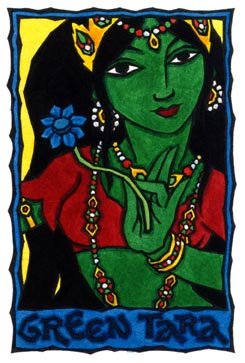Cake Me
 I make it a habit to ask people about their favorite birthdays and also their favorite birthday cake. My husband's was from childhood and featured plastic depictions of the Beatles. How cool is that? Drum set and all.
I make it a habit to ask people about their favorite birthdays and also their favorite birthday cake. My husband's was from childhood and featured plastic depictions of the Beatles. How cool is that? Drum set and all.When I was little, I remember being in awe of a classmate who had a Barbie  cake. For those of you who have never seen such a thing -- it involves placing a Barbie in the middle of a dome cake and then icing it to look like her ballgown skirt. When I asked my mom to make me one (Barbie cakes were not available in bakeries back in the day -- although I am told that now they are) she told me, "No way." My mom was really not the baking type -- and she also thought it was a little gross to stick a doll in a cake.
cake. For those of you who have never seen such a thing -- it involves placing a Barbie in the middle of a dome cake and then icing it to look like her ballgown skirt. When I asked my mom to make me one (Barbie cakes were not available in bakeries back in the day -- although I am told that now they are) she told me, "No way." My mom was really not the baking type -- and she also thought it was a little gross to stick a doll in a cake.
 cake. For those of you who have never seen such a thing -- it involves placing a Barbie in the middle of a dome cake and then icing it to look like her ballgown skirt. When I asked my mom to make me one (Barbie cakes were not available in bakeries back in the day -- although I am told that now they are) she told me, "No way." My mom was really not the baking type -- and she also thought it was a little gross to stick a doll in a cake.
cake. For those of you who have never seen such a thing -- it involves placing a Barbie in the middle of a dome cake and then icing it to look like her ballgown skirt. When I asked my mom to make me one (Barbie cakes were not available in bakeries back in the day -- although I am told that now they are) she told me, "No way." My mom was really not the baking type -- and she also thought it was a little gross to stick a doll in a cake.So I settled for the traditional one with the frosting roses, white cake and white buttercream on the outside. What is strange though is that very cake is now my favorite kind. Interesting what adaptation can do.
My favorite birthday has multiple answers -- which I allow in my version of this game. One was when I turned nine and my father returned from Japan with a beautiful geisha doll for me. The other was when I turned thirty and many friends celebrated with me at a since-demolished but wonderful dive called The Ratskellar (The Rat to us regulars). There was a great live band, a lot of beer, and a biker who wanted to kiss me.
What was (were) your favorite birthday(s)?
What is your favorite kind of birthday cake?





